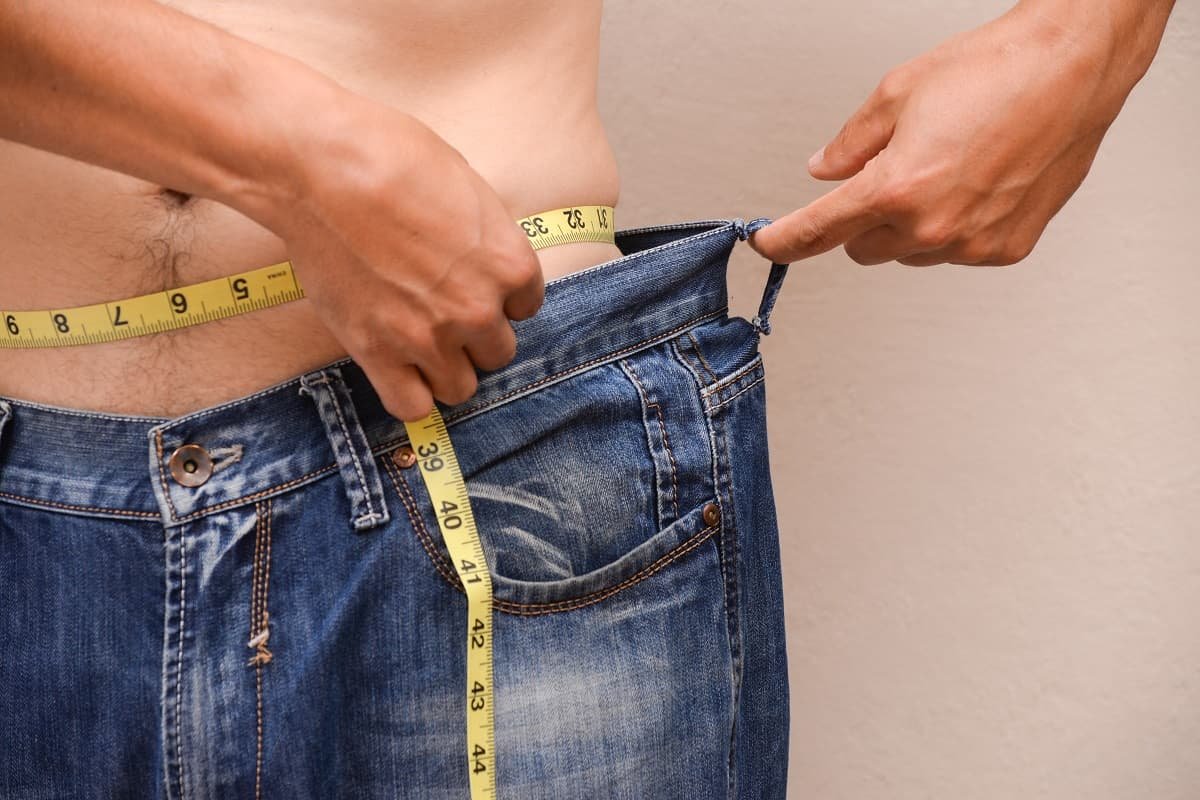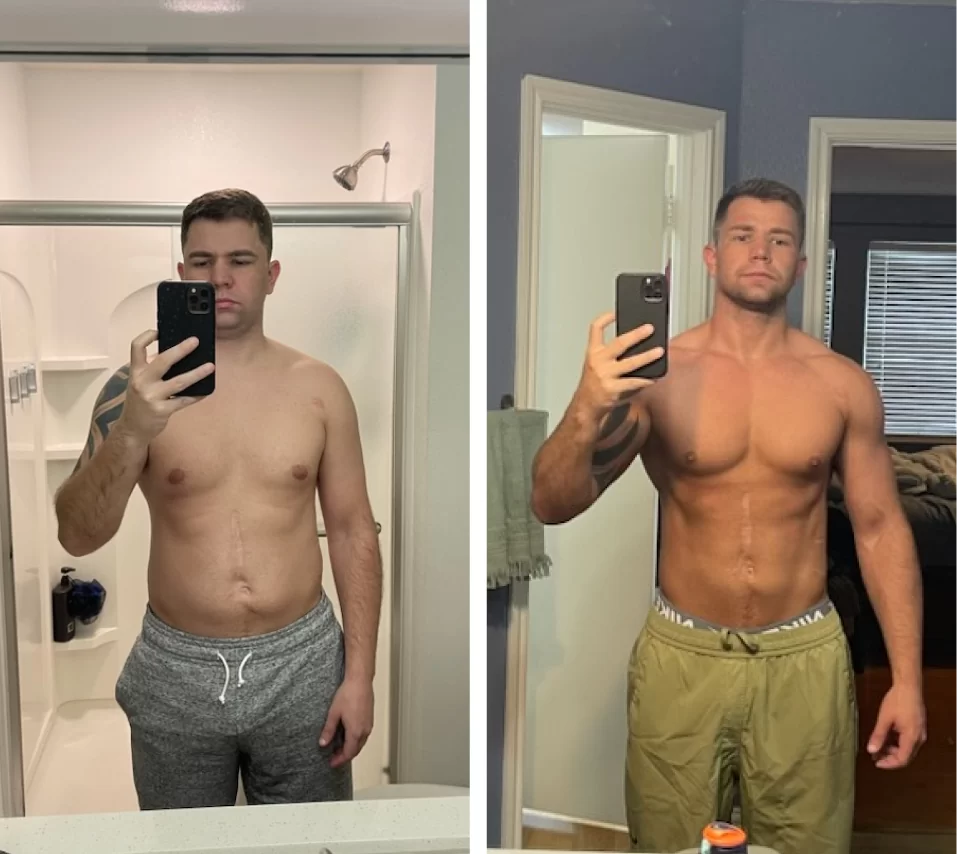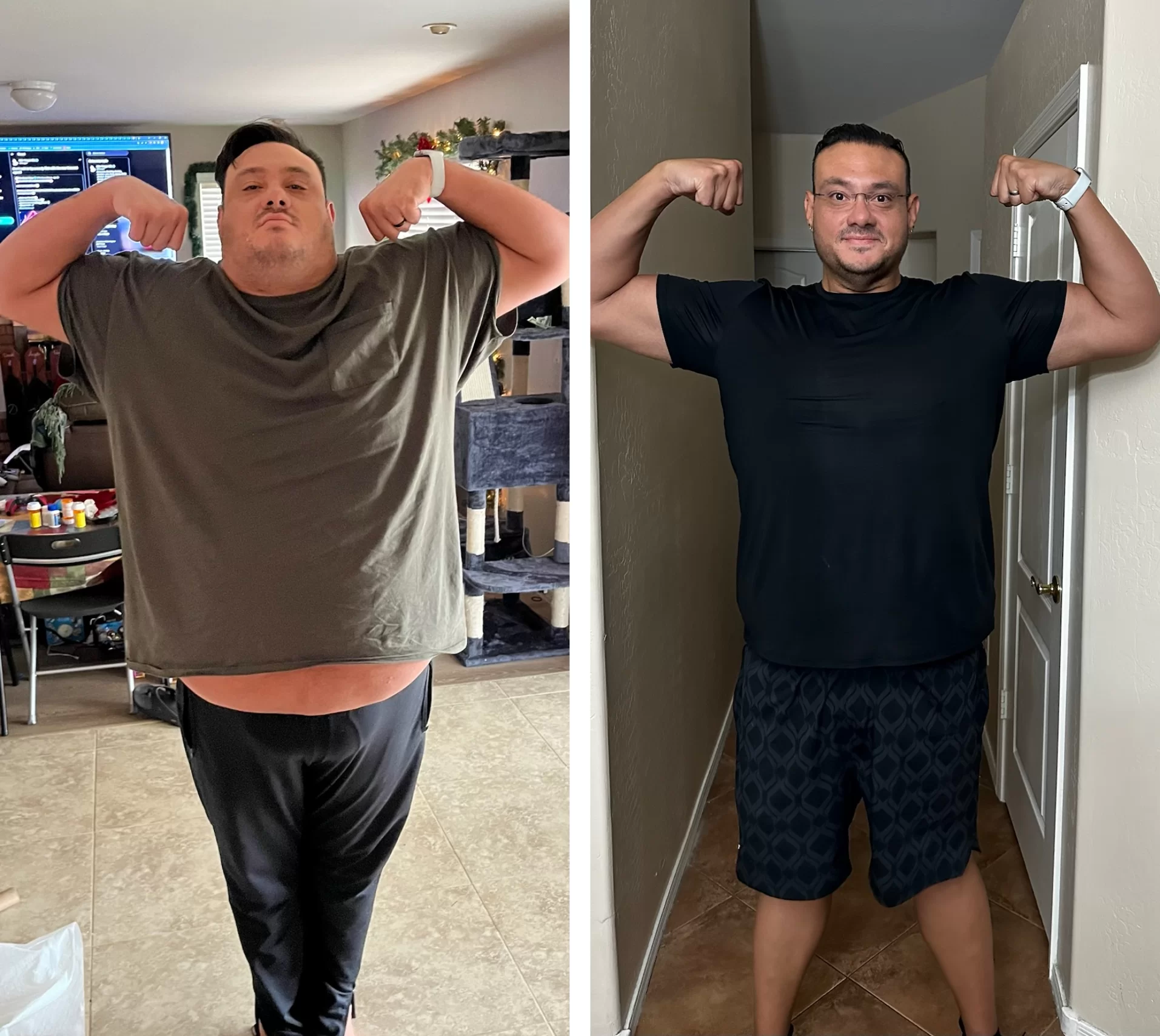For many men suffering from weight gain, every day becomes a constant struggle to fully engage in physical activity. The stress from the excess weight can wear down the cartilage at the end of the bones and gradually cause damage to the joints, eventually leading to shooting pain and inflammation. Men with a BMI of 27.5 or higher will also experience constant fatigue. Being overweight can also lead to several health complications, including high cholesterol, hypertension, osteoarthritis, and obstructive sleep apnea.
Naturally, it is imperative for men to exercise regularly and maintain a healthy body fat percentage so they can improve their health. To achieve this, men with a high BMI first need to shed their extra pounds. Most men will attempt to exercise regularly, but depending on their body type, adhering to a regimen can take time and effort. And in some cases, despite their efforts, some men who rigorously exercise may still have trouble getting rid of their extra weight.
Typically, men are unaware that the presence of another medical condition is usually the most likely cause of their weight increase. For example, many men with underlying medical conditions such as diabetes or hyperthyroidism have typically been shown to experience sudden weight gain. Although many underlying complications can contribute to weight gain, one of the most likely reasons why men experience increased body fat is low testosterone.
How Can Testosterone Levels Impact Weight?

However, all of that will change once testosterone levels start to decline. When testosterone deficiency occurs, your energy levels and muscle mass decreases, making it more challenging to engage in physical activity and regular exercise. And as your muscle mass deteriorates and your metabolism slows down, the body reduces its use of those stored fats, making it more difficult to burn through extra calories. Subsequently, as you consume more calories, most of the extra energy produced gets absorbed into your fat cells for storage. Without a way to burn off those calories, your body will eventually accumulate fat, leading to increased weight gain and obesity.
Can Obesity Affect Your Testosterone Levels?
Typically, when your body requires more testosterone, the hypothalamus and pituitary glands will send signals to the testes to increase testosterone production. However, age, injury, and other medical issues can cause the testes to produce less testosterone, eventually leading to a testosterone deficiency known as hypogonadism. And one of the most common medical complications to lead to hypogonadism just so happens to be obesity.
As you gain belly fat, your body produces aromatase, an enzyme responsible for transforming testosterone into estrogen. Basically, as you gain more weight, your body produces even more aromatase, which can lead to abnormally high estrogen levels. Eventually, high estrogen and aromatase levels can affect the production and release of the gonadotropin-releasing hormone (GnRH), which is essential in producing the luteinizing hormone needed to synthesize testosterone in the testes.
Due to the lack of GnRH, the pituitary gland will believe that the body no longer requires testosterone and will stop producing the luteinizing hormone. As a result, the testes will stop producing testosterone, and your body is left vulnerable to obese weight gain and high estrogen levels that will continue to block your testosterone production.
Thus, your original issues with low testosterone can create a vicious cycle that’s difficult to break. Low testosterone can lead to rapid weight gain, making remaining active and exercising regularly more challenging. As a result, the increased body fat produces more estrogen, which causes your testosterone levels to decline further.
Can Boosting Testosterone Help You Lose Weight and Belly Fat?
Since low testosterone causes hormonal weight gain in men, researchers have concluded that men suffering from testosterone deficiency will lose fat once they can elevate their testosterone levels to normal standards. However, you will need to be very careful about how you receive your testosterone. Due to the popularity of testosterone, many men have been lured into the hype of using testosterone supplements to help increase their testosterone levels. These so-called testosterone boosters are ineffective in raising testosterone levels. In addition, many of these testosterone supplements have also been found to suppress natural testosterone levels, which can also be counterproductive to increasing your testosterone.
Many scientific studies have found that testosterone replacement therapy (TRT) is the most effective way for men with low testosterone to boost their testosterone levels and reduce their body fat.
How Can TRT Support Weight Loss?
With testosterone replacement therapy, patients can administer regularly scheduled testosterone injections to help men with Low T replenish and optimize their testosterone. Once they’ve raised their hormone levels, their metabolism speed increases and makes it easier to burn through fat and calories, which can boost their energy levels so they can return to physical training with renewed vigor and exercise for longer periods of time. In addition, TRT can help promote lean muscle growth and build muscle strength, allowing men to engage in more rigorous workouts to help them lose weight.
At Renew Vitality, we provide comprehensive testosterone replacement therapy to men suffering from low testosterone-related symptoms such as rapid weight gain. Our treatment programs combine various hormonal medications with individualized exercise and diet plans to help men elevate their testosterone levels and reduce their body fat. If you believe you are experiencing unexplained weight gain due to low testosterone, contact us at 1-800-785-3945 to schedule an appointment at one of our hormone replacement clinics in the United States.
FAQ
Does testosterone cypionate cause weight loss?
Yes, it can. The components used in testosterone cypionate have been proven very effective in helping men lose body fat and achieve lean muscle growth.
How much weight can you lose by taking testosterone?
That will depend on your body's response to treatment. In clinical studies, men who used testosterone injections for an extended period of time were able to lose 20% of their average body weight.
Does testosterone cream help with weight loss?
Yes, compounded testosterone creams absorbed through the skin can provide the same benefits as injections. Men who use testosterone cream will still be able to gain muscle mass and reduce their body fat.




